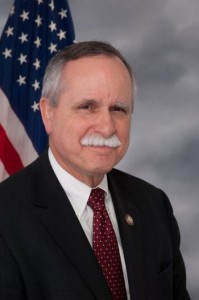![Keystone XL protest, Washington D.C. 2013. By Jmcdaid (Own work) [CC-BY-SA-3.0 (http://creativecommons.org/licenses/by-sa/3.0)], via Wikimedia Commons](http://occupyworldwrites.org/wp-content/uploads/2014/05/13feb17_nokxl_dc-300x178.jpg)
Keystone XL protest, Washington D.C. 2013. By Jmcdaid (Own work) [CC-BY-SA-3.0 (http://creativecommons.org/licenses/by-sa/3.0)], via Wikimedia Commons
Three days ago, on May 28, it became known that the federal Pipeline and Hazardous Materials Safety Administration (PHMSA) had quietly added two additional regulations after finding out about potentially dangerous defects in the same southern leg that was touted as the safest pipeline ever built. The first requires TransCanada to hire a third party contractor hired by the PHMSA to monitor the construction of the pipeline and make reports to the safety administration on whether the work is sound. The second requires TransCanada to adopt a quality management program to ensure that the pipeline is “built to the highest standards by both Keystone personnel and its many contractors.”
Why the added regulations? In a letter to TransCanada from September 26, PHMSA said TransCanada had experienced a “high weld rejection rate,” with 72 percent of welds needing repair over the course of just one week. In another week, TransCanada had stopped welding work after 205 out of 425 welds required repairs. PHMSA also said that their inspectors had found that TransCanada wasn’t using approved welding procedures, and that the company had improperly tested the welders they hired – in other words, they weren’t qualified to do the job.
Another letter dated September 10 stated that inspectors discovered that parts of the pipeline had been laid without properly clearing rocks away from pipeline trenches. They also noticed that a corrosion-resistant coating had been damaged in numerous places by improper welding. This led to TransCanada digging up the pipeline in 97 different places to repair the coating. A November report found that TransCanada had dug up the pipeline 125 times to fix dents and sags. And, this is the safest pipeline ever built?
Over the last couple years, there’s been a groundswell of people across the globe raising awareness of the danger to climate and the environment from pipelines, fracking and the fossil fuel industry in general. On the other side, Big Oil and Big Coal have deep pockets and plenty of Congressthings to do their bidding and stop anything that might interfere with their profits.
Twenty years from now, 2014 will be seen as a defining point with how we deal with climate and the environment. It’s up to us to see that the good guys win; otherwise it’ll be known as the year we went past the point of no return.




![By Gage Skidmore [CC-BY-SA-3.0 (http://creativecommons.org/licenses/by-sa/3.0)], via Wikimedia Commons](http://occupyworldwrites.org/wp-content/uploads/2014/05/Scott_Walker_by_Gage_Skidmore-239x300.jpg)
![Governor Pat McCrory. By Hal Goodtree from Cary, North Carolina, USA (Pat McCrory) [CC-BY-2.0 (http://creativecommons.org/licenses/by/2.0)], via Wikimedia Commons](http://occupyworldwrites.org/wp-content/uploads/2014/05/512px-Pat_McCrory_July_2012-300x258.jpg)
![Soldiers National Monument, Gettysburg. Photo by Henryhartley at en.wikipedia Statue: Randolph Rogers (1825-1892) [GFDL (www.gnu.org/copyleft/fdl.html), CC-BY-SA-3.0 (http://creativecommons.org/licenses/by-sa/3.0/) or Public domain], via Wikimedia Commons](http://occupyworldwrites.org/wp-content/uploads/2014/05/Gettysburg_national_cemetery_img_4164-300x200.jpg)

![Confederate Memorial at the Alabama State Capitol. Photo by User:Spyder_Monkey (Own work) [CC-BY-SA-3.0 (http://creativecommons.org/licenses/by-sa/3.0)], via Wikimedia Commons](http://occupyworldwrites.org/wp-content/uploads/2014/05/Confederate_Memorial_at_Alabama_State_Capitol_Apr2009-224x300.jpg)
![Tami Canal, founder of March Against Monsanto. By SarahBethB1 (March Against Monsanto Salt Lake City, UT 5.25.13) [CC-BY-2.0 (http://creativecommons.org/licenses/by/2.0)], via Wikimedia Commons](http://occupyworldwrites.org/wp-content/uploads/2014/05/Tami_Canal-300x199.jpg)


![Winona laDuke (Honor the Earth). By Eclectek (Own work) [GFDL (http://www.gnu.org/copyleft/fdl.html) or CC-BY-3.0 (http://creativecommons.org/licenses/by/3.0)], via Wikimedia Commons](http://occupyworldwrites.org/wp-content/uploads/2014/05/Winona_duke_dream_reborn-222x300.png)

![Omar al-Bashir, the president of Sudan. By U.S. Navy photo by Mass Communication Specialist 2nd Class Jesse B. Awalt/Released) [Public domain], via Wikimedia Commons](http://occupyworldwrites.org/wp-content/uploads/2014/05/Omar_al-Bashir_12th_AU_Summit_090202-N-0506A-137-199x300.jpg)
